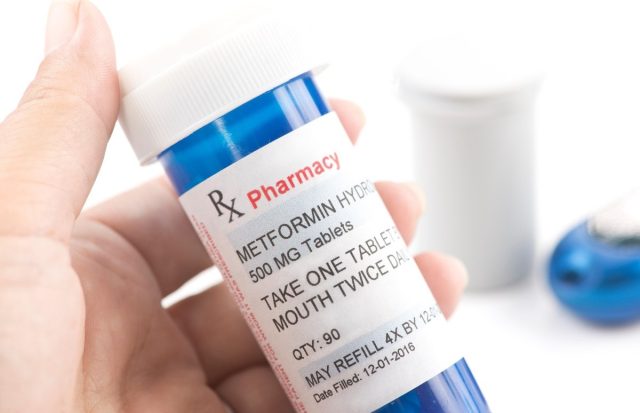Glucose lowering is greater when metformin is given before rather than with enteral glucose; this is also linked to greater GLP-1 response
By Elana Gotkine HealthDay Reporter
FRIDAY, June 21, 2024 (HealthDay News) — Glucose lowering by metformin is greater when given before enteral glucose among patients with type 2 diabetes controlled by metformin monotherapy, according to a study recently published in Diabetologia.
Cong Xie, Ph.D., from the University of Adelaide in Australia, and colleagues studied 16 participants with type 2 diabetes that was relatively well controlled by metformin monotherapy on four separate days. Participants were randomly assigned on each day to receive a bolus infusion of metformin via a nasoduodenal catheter at −60, −30, or 0 minutes (saline at other time points) or saline at all time points (control) followed by an intraduodenal glucose infusion at 0 to 60 minutes.
The researchers identified a treatment-by-time interaction for metformin in terms of reducing plasma glucose levels and increasing plasma glucagon-like peptide 1 (GLP-1) and insulin levels. A greater reduction in plasma glucose levels was seen when metformin was administered at −60 or −30 minutes versus 0 minutes; the increases in plasma GLP-1 were only seen when metformin was administered at −60 or −30 minutes. Metformin enhanced glucose-induced insulin secretion, although it did not influence insulin sensitivity; on the three days when metformin was given, the increases in plasma insulin levels were comparable.
“Metformin is more effective in glucose-lowering when given before, rather than with, enteral glucose, and this is associated with a greater GLP-1 response,” the authors write.
Several authors disclosed ties to the pharmaceutical industry.
Copyright © 2024 HealthDay. All rights reserved.



















